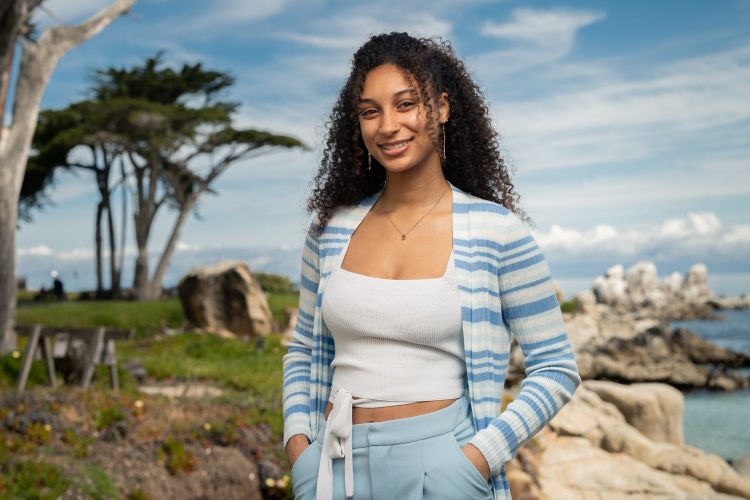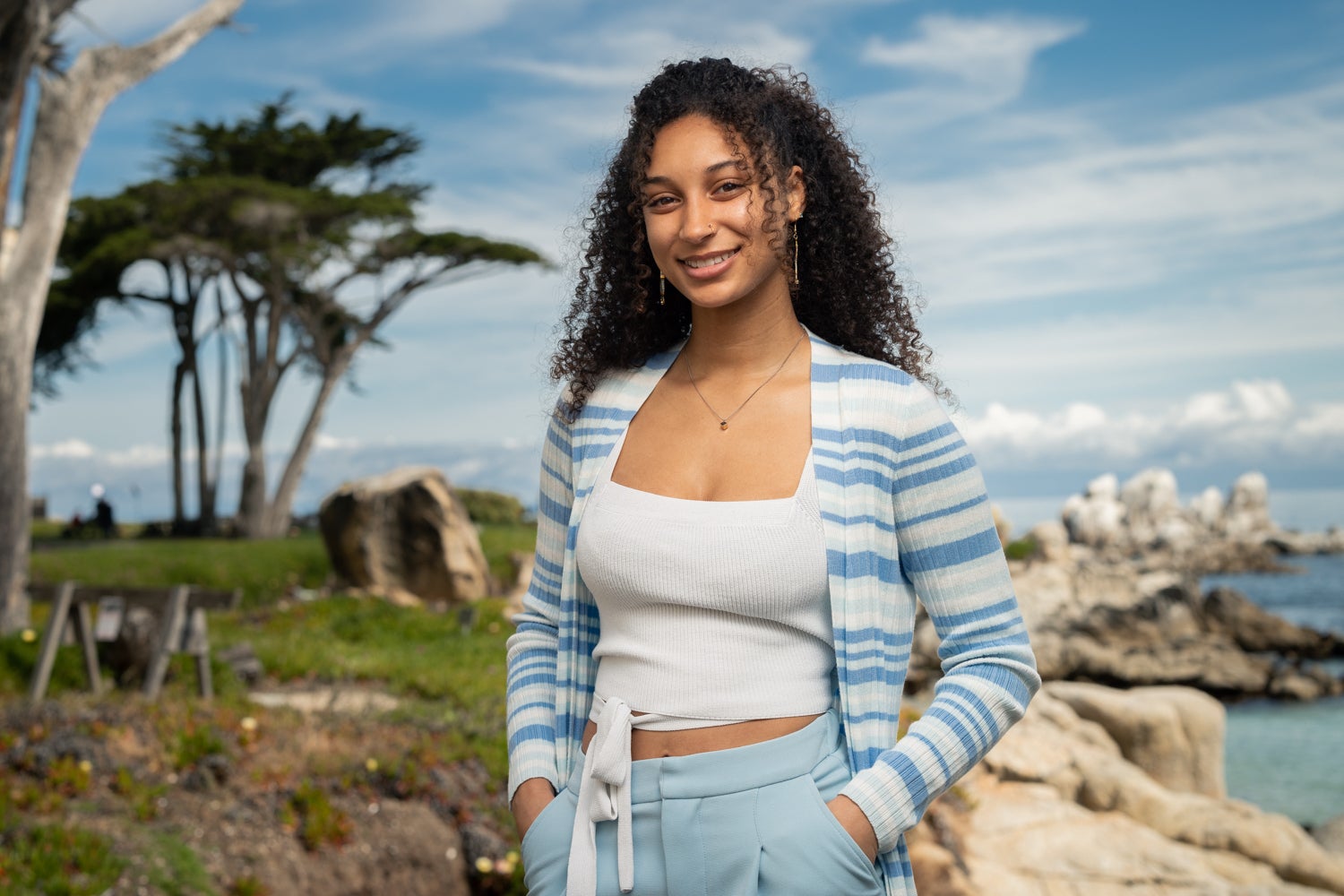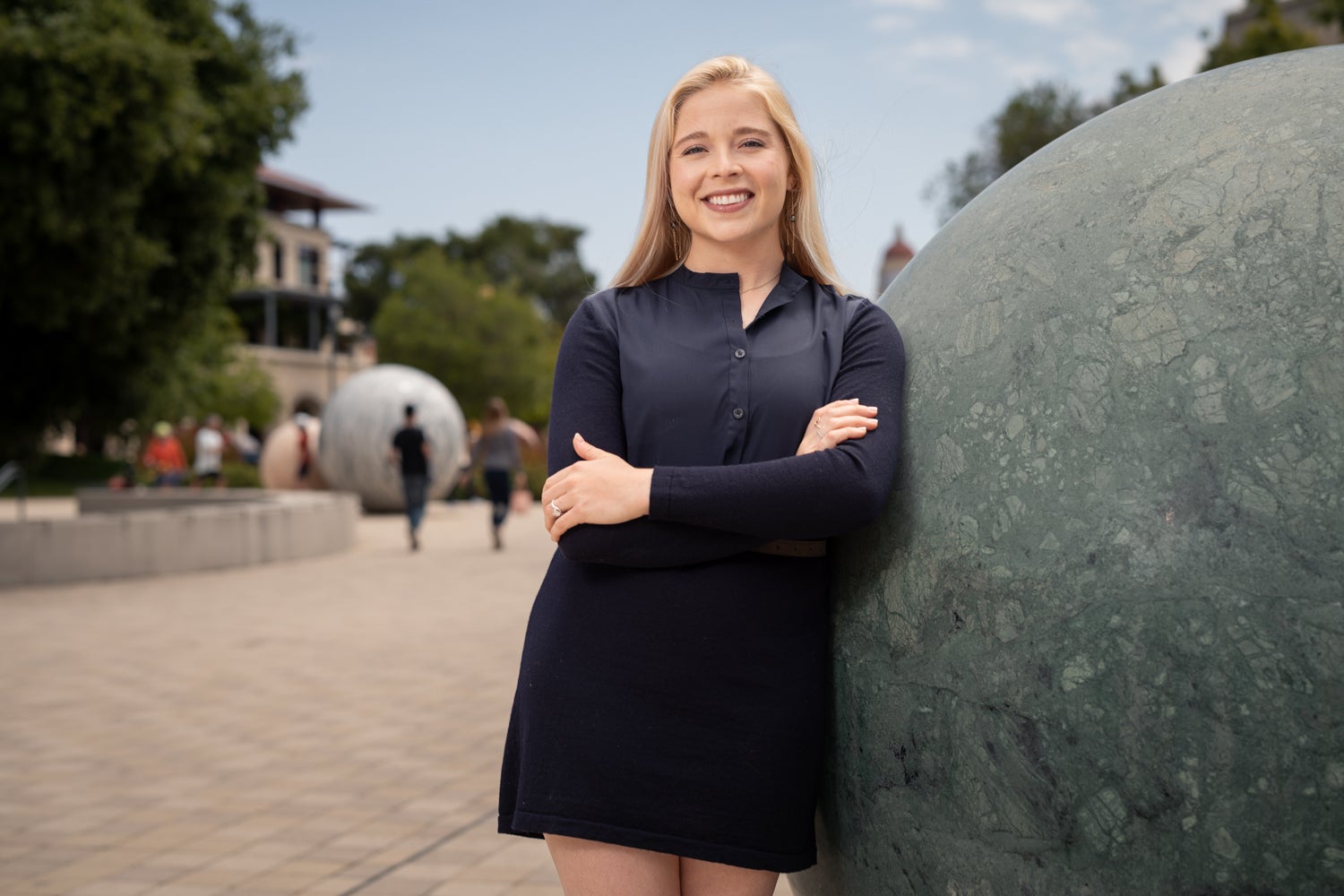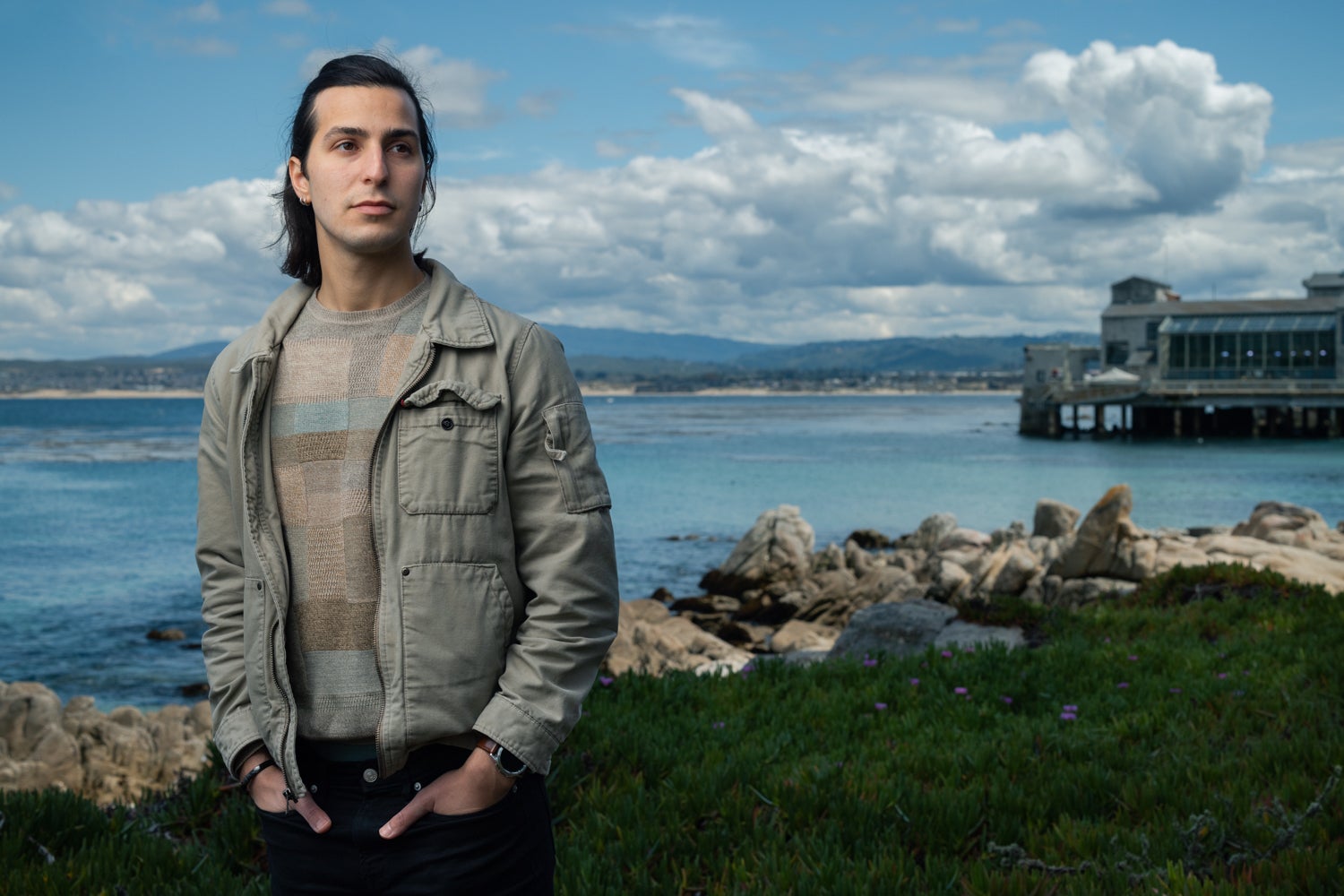Across Stanford’s campuses, from the shores of Redwood City to the beaches of Pacific Grove, scores of faculty, staff, and students have something to contribute to ocean research and conservation. Some may not even know it.
The university has long been on the forefront of traditional marine science, with departments such as Biology, Earth System Science, and Civil and Environmental Engineering offering avenues to study the sea. The new Oceans Department, launched last fall as part of the Stanford Doerr School of Sustainability, unites scholars focused on ocean discovery and sustainability. This fall, it will welcome its first cohort of graduate students.
But the university is also home to many other disciplines crucial to solving ocean challenges, like business, political science, the humanities, design, and computer science. Protecting the ocean requires mobilizing them all.
For World Oceans Day on June 8, the United Nations will highlight how the “tides are changing” in celebration of the people across disciplines, sectors, and geographies that are working to understand and care for the oceans.
We spoke with three Stanford graduate students currently pursuing an ocean-related degree about their path to studying the sea, their hopes for the future, and why a healthy ocean needs various schools of thought – and all walks of life.


Ceyenna Tillman, PhD ’26
“When I think about how the ‘tides are changing,’ … I think about including people and community needs that historically have been excluded from important conversations. My hope is that we can make access to the ocean more equitable.”


Margaret Daly, PhD ’23
“I have a lot of hope for solutions-based approaches to addressing ocean science and thinking about holistic impacts, not just on fisheries management, but also what it means for communities.”


Maurice Goodman, PhD ’24
“Historically, science conceptualized people and nature as distinct, but scientists are finally starting to embrace local ecological knowledge and acknowledge that people … are important parts of healthy ecosystems.”
Ceyenna Tillman
“Growing up in Sacramento, far from the coast, my introduction to oceans came through television and movies. After school, my parents would pop in the VHS tape for the original Little Mermaid, often multiple times a day because I would keep asking for it. That was the first time I remember being fascinated by the ocean world.
“I remember that fascination growing as I learned about my dad’s fish tank: how it worked and what kills the fish, what keeps them alive, how they interact with each other, why they all look so different. It inspired this curiosity. I was drawn to how many ways there are to be alive, all that beautiful biodiversity.
“As I turned to an undergrad education for answers, it became very clear that I was doing something that had not previously been accessible to people with my identity. I am the second Black student to enroll in my program at Stanford.
“I never really questioned whether I could be a marine scientist. I just imagined myself in the magical places I had seen on TV rather than trying to look for other people who were already doing it. I’m excited to maybe someday be that person that other people like me can look to and say, ‘Oh yes, we definitely can do this. It can look like this. People have done it before.’
“When I think about how the ‘tides are changing,’ I think of people like me, who haven’t seen themselves represented in ocean science and conservation. I think about including people and community needs that historically have been excluded from important conversations. My hope is that we can make access to the ocean more equitable. My research is primarily based in Palau, an island nation in Micronesia, where our local collaborators have been monitoring the decline of seagrass. I’m using a genetic tool called environmental DNA to help them sort out what the consequences of this decline might be. One of the most accessible avenues for fishing there is going into the intertidal sea grasses and looking for valuable species. My hope is that tools like environmental DNA can be scaled, deployed, and made more affordable around the world to help build a more accessible and inclusive ocean.
“This vision of inclusivity gives me hope. When I speak to collaborators in Palau, I’m reminded that their ancestors have stewarded the ocean effectively for generations, with strong cultural, nutritional, and economic ties. Caring for our ocean resources is not something that we have to build from scratch. If we’ve done it before, I think we can do it again. Are there new challenges? Sure. But I think a lot of people still have that same level of passion and care. All of this knowledge exists. We just have to be open to hearing it and accepting it.”
Ceyenna Tillman is a PhD student in the Department of Biology based at Hopkins Marine Station, where she studies coral reef community ecology, anthropogenic change, species interactions, and community resilience and stability. She is dedicated to diversifying the marine sciences and ensuring equitable access to natural resources.
Ceyenna Tillman
“Growing up in Sacramento, far from the coast, my introduction to oceans came through television and movies. After school, my parents would pop in the VHS tape for the original Little Mermaid, often multiple times a day because I would keep asking for it. That was the first time I remember being fascinated by the ocean world.
“I remember that fascination growing as I learned about my dad’s fish tank: how it worked and what kills the fish, what keeps them alive, how they interact with each other, why they all look so different. It inspired this curiosity. I was drawn to how many ways there are to be alive, all that beautiful biodiversity.
“As I turned to an undergrad education for answers, it became very clear that I was doing something that had not previously been accessible to people with my identity. I am the second Black student to enroll in my program at Stanford.
“I never really questioned whether I could be a marine scientist. I just imagined myself in the magical places I had seen on TV rather than trying to look for other people who were already doing it. I’m excited to maybe someday be that person that other people like me can look to and say, ‘Oh yes, we definitely can do this. It can look like this. People have done it before.’
“When I think about how the ‘tides are changing,’ I think of people like me, who haven’t seen themselves represented in ocean science and conservation. I think about including people and community needs that historically have been excluded from important conversations. My hope is that we can make access to the ocean more equitable. My research is primarily based in Palau, an island nation in Micronesia, where our local collaborators have been monitoring the decline of seagrass. I’m using a genetic tool called environmental DNA to help them sort out what the consequences of this decline might be. One of the most accessible avenues for fishing there is going into the intertidal sea grasses and looking for valuable species. My hope is that tools like environmental DNA can be scaled, deployed, and made more affordable around the world to help build a more accessible and inclusive ocean.
“This vision of inclusivity gives me hope. When I speak to collaborators in Palau, I’m reminded that their ancestors have stewarded the ocean effectively for generations, with strong cultural, nutritional, and economic ties. Caring for our ocean resources is not something that we have to build from scratch. If we’ve done it before, I think we can do it again. Are there new challenges? Sure. But I think a lot of people still have that same level of passion and care. All of this knowledge exists. We just have to be open to hearing it and accepting it.”
Ceyenna Tillman is a PhD student in the Department of Biology based at Hopkins Marine Station, where she studies coral reef community ecology, anthropogenic change, species interactions, and community resilience and stability. She is dedicated to diversifying the marine sciences and ensuring equitable access to natural resources.
Margaret Daly
“I realized as a young child that I had a deep passion and curiosity for the ocean distinct from my other interests, like playing tag or building Lego landscapes. As a millennial, I read several books from the Magic Tree House series. There was one called Dolphins at Daybreak that, though fictional, had a nonfiction counterpart that told you all about dolphins and sharks and had diagrams with facts about how far sound can travel, which got me excited about science and discovery.
“Even though I’m from rural Pennsylvania, with the unwavering support from my mom, I knew that I could do anything I wanted in ocean science. I was initially interested in biology, and then math and physics. I’ve found a niche where I can use technology and engineering to answer biologically driven questions. That’s how I landed at Stanford, where labs are doing interdisciplinary work between physical oceanography, biological oceanography, and ecology. I didn’t see myself as an oceanographer until I came to graduate school and realized how diverse oceanography really can be.
“I study environmental conditions in kelp forests and how currents and flow affect biology. For example, the green abalone fishery, which collapsed in the U.S., still exists in Baja California, but depends on a healthy kelp forest. Kelp forests change hydrodynamics and can create refuges for abalone as hypoxic and warming events become more frequent. I’ve been working with fishing communities in Mexico to understand these dynamics and find pathways forward. However, climate change is not the only issue facing coastal communities. Working closely with these fishing communities, I also learned about the great lengths they go to deter illegal fishing. For example, fishers in this area often reverse their sleep cycle to patrol at night.
“I began working with the Center for Ocean Solutions on a global approach to address illegal fishing. They have an ongoing project that uses information like where vessels are fishing and what sustainability commitments they’ve made to give a more holistic picture of illegal fishing risks for company supply chains.
“I have a lot of hope for solutions-based approaches to addressing ocean science and thinking about holistic impacts, not just on fisheries management, but also what it means for communities. Working with academics, NGOs, companies, and industries has been a fulfilling aspect of my experience at Stanford. It’s opened my eyes to the possibility of applying ocean science to numerous industries.
“As a researcher, I’m inspired by working with collaborators and watching sparks fly when people get in the room together. Amazing ideas come from working with people from all walks of life and disciplines. And that’s where I’ve had the most fun and productivity as a scientist.”
Margaret Daly, PhD ’23, will graduate this month from the Department of Civil and Environmental Engineering, where she studied ocean flow through kelp forests. She is a former research assistant at the Stanford Center for Ocean Solutions, an experienced scientific diver, and passionate about advancing policy to support ocean sustainability.
Margaret Daly
“I realized as a young child that I had a deep passion and curiosity for the ocean distinct from my other interests, like playing tag or building Lego landscapes. As a millennial, I read several books from the Magic Tree House series. There was one called Dolphins at Daybreak that, though fictional, had a nonfiction counterpart that told you all about dolphins and sharks and had diagrams with facts about how far sound can travel, which got me excited about science and discovery.
“Even though I’m from rural Pennsylvania, with the unwavering support from my mom, I knew that I could do anything I wanted in ocean science. I was initially interested in biology, and then math and physics. I’ve found a niche where I can use technology and engineering to answer biologically driven questions. That’s how I landed at Stanford, where labs are doing interdisciplinary work between physical oceanography, biological oceanography, and ecology. I didn’t see myself as an oceanographer until I came to graduate school and realized how diverse oceanography really can be.
“I study environmental conditions in kelp forests and how currents and flow affect biology. For example, the green abalone fishery, which collapsed in the U.S., still exists in Baja California, but depends on a healthy kelp forest. Kelp forests change hydrodynamics and can create refuges for abalone as hypoxic and warming events become more frequent. I’ve been working with fishing communities in Mexico to understand these dynamics and find pathways forward. However, climate change is not the only issue facing coastal communities. Working closely with these fishing communities, I also learned about the great lengths they go to deter illegal fishing. For example, fishers in this area often reverse their sleep cycle to patrol at night.
“I began working with the Center for Ocean Solutions on a global approach to address illegal fishing. They have an ongoing project that uses information like where vessels are fishing and what sustainability commitments they’ve made to give a more holistic picture of illegal fishing risks for company supply chains.
“I have a lot of hope for solutions-based approaches to addressing ocean science and thinking about holistic impacts, not just on fisheries management, but also what it means for communities. Working with academics, NGOs, companies, and industries has been a fulfilling aspect of my experience at Stanford. It’s opened my eyes to the possibility of applying ocean science to numerous industries.
“As a researcher, I’m inspired by working with collaborators and watching sparks fly when people get in the room together. Amazing ideas come from working with people from all walks of life and disciplines. And that’s where I’ve had the most fun and productivity as a scientist.”
Margaret Daly, PhD ’23, will graduate this month from the Department of Civil and Environmental Engineering, where she studied ocean flow through kelp forests. She is a former research assistant at the Stanford Center for Ocean Solutions, an experienced scientific diver, and passionate about advancing policy to support ocean sustainability.
Maurice Goodman
“I grew up in Chicago – pretty far from the ocean – and was first introduced to marine science at a kindergarten book fair where I picked out a book on sharks. I started collecting things related to the ocean – field guides to fish and sharks, fossilized shark teeth, and the like – as if they were Pokémon.
“I was also lucky enough to have heroes both on and off the page. Rachel Carson’s writing, particularly Silent Spring, had a huge impact on me as a kid. She was an idol of mine, and I think her story shows that if you strike the right chord, you can create a lot of change for good. My parents were incredibly supportive of my interests. When I was 13, my dad even got SCUBA certified with me in a catfish-stocked quarry in Kankakee, Illinois – still pretty far from the ocean, but I was hooked.
“At Stanford, I study marine biogeography – basically, my research asks where fish are now, where they’re going as our climate changes, and how those changes affect ecosystems. My work focuses on the eastern Bering Sea, which is important culturally and economically for both Alaska’s coastal communities and the nation more broadly: The region contributes about 40% of annual U.S. fisheries landings. Yet waters in the eastern Bering Sea are warming faster than most places. Fish and crabs are dependent on the cold waters associated with winter sea ice, but in recent years that sea ice has been virtually absent along the Bering Sea shelf.
“While the basic physics of climate change are well understood, the effects of climate change on many marine ecosystems are still unknown. But I do think there is still a lot we can save. The uncertainties we have about climate trends like global temperatures, sea level rise, and ocean acidification are mostly due to not knowing where society and industry will go, and what our greenhouse gas emissions will look like as a result. To me, this is a good thing, because it means we have a choice. I think that if we couple climate action with effective marine conservation and fisheries management, 2100 could have healthier oceans than 2023. I think that’s a world that everyone wants to live in.
“I also think that putting the ocean first doesn’t have to mean not putting people first. Most fisheries around the globe are small-scale, with local fishing for local consumption. These communities rely on the ocean for food, but they also have deep cultural ties to their coastal ecosystems. Historically, science conceptualized people and nature as distinct, but scientists are finally starting to embrace local ecological knowledge and acknowledge that people, especially Indigenous communities, are important parts of healthy ecosystems.
“Moving forward, I hope that conservation is for the benefit of everyone. We must reconnect local communities and Indigenous peoples with their waters and land. We as scientists can’t just think about our work as ‘We’re the ones with knowledge, and we give it to you.’ This process is a two-way street.”
Maurice Goodman is a PhD student in the Department of Biology based at Hopkins Marine Station, where he studies how fisheries and marine resource management can adapt to a warming world. An avid scientific diver, he is passionate about building management solutions for ocean and climate challenges and ensuring that conservation efforts are designed to serve diverse communities.
Maurice Goodman
“I grew up in Chicago – pretty far from the ocean – and was first introduced to marine science at a kindergarten book fair where I picked out a book on sharks. I started collecting things related to the ocean – field guides to fish and sharks, fossilized shark teeth, and the like – as if they were Pokémon.
“I was also lucky enough to have heroes both on and off the page. Rachel Carson’s writing, particularly Silent Spring, had a huge impact on me as a kid. She was an idol of mine, and I think her story shows that if you strike the right chord, you can create a lot of change for good. My parents were incredibly supportive of my interests. When I was 13, my dad even got SCUBA certified with me in a catfish-stocked quarry in Kankakee, Illinois – still pretty far from the ocean, but I was hooked.
“At Stanford, I study marine biogeography – basically, my research asks where fish are now, where they’re going as our climate changes, and how those changes affect ecosystems. My work focuses on the eastern Bering Sea, which is important culturally and economically for both Alaska’s coastal communities and the nation more broadly: The region contributes about 40% of annual U.S. fisheries landings. Yet waters in the eastern Bering Sea are warming faster than most places. Fish and crabs are dependent on the cold waters associated with winter sea ice, but in recent years that sea ice has been virtually absent along the Bering Sea shelf.
“While the basic physics of climate change are well understood, the effects of climate change on many marine ecosystems are still unknown. But I do think there is still a lot we can save. The uncertainties we have about climate trends like global temperatures, sea level rise, and ocean acidification are mostly due to not knowing where society and industry will go, and what our greenhouse gas emissions will look like as a result. To me, this is a good thing, because it means we have a choice. I think that if we couple climate action with effective marine conservation and fisheries management, 2100 could have healthier oceans than 2023. I think that’s a world that everyone wants to live in.
“I also think that putting the ocean first doesn’t have to mean not putting people first. Most fisheries around the globe are small-scale, with local fishing for local consumption. These communities rely on the ocean for food, but they also have deep cultural ties to their coastal ecosystems. Historically, science conceptualized people and nature as distinct, but scientists are finally starting to embrace local ecological knowledge and acknowledge that people, especially Indigenous communities, are important parts of healthy ecosystems.
“Moving forward, I hope that conservation is for the benefit of everyone. We must reconnect local communities and Indigenous peoples with their waters and land. We as scientists can’t just think about our work as ‘We’re the ones with knowledge, and we give it to you.’ This process is a two-way street.”
Maurice Goodman is a PhD student in the Department of Biology based at Hopkins Marine Station, where he studies how fisheries and marine resource management can adapt to a warming world. An avid scientific diver, he is passionate about building management solutions for ocean and climate challenges and ensuring that conservation efforts are designed to serve diverse communities.


